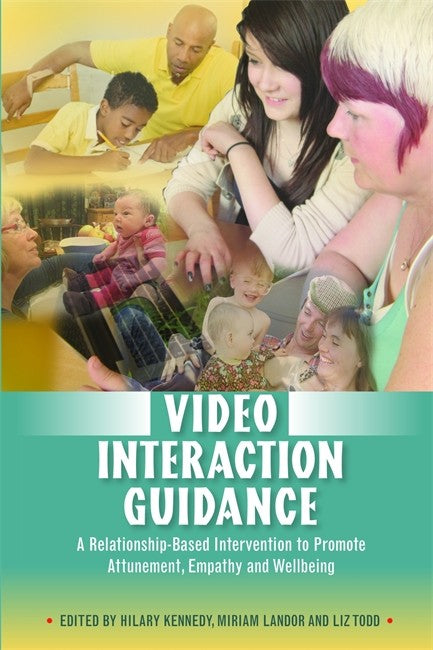Description
Preface. Hilary Kennedy, Educational Psychologist and Co-founder of the VEROC Centre, University of Dundee, UK. Part 1. Video Interaction Guidance. 1.1. What is Video Interaction Guidance (VIG)? Hilary Kennedy. 1.2. VIG and the Supervision Process. Kateøina ilhánová, SPIN, Czech Republicand Michelle Sancho, Senior Educational Psychologist, West Berkshire Council and Honorary Lecturer, University College London, UK. 1.3. How and Why Does VIG Work? Jenny Cross, Freelance Educational Psychologist, VIG Supervisor and Coach, UK and Hilary Kennedy. 1.4. What is the Evidence that VIG is Effective? Ruben Fukkink, Researcher, University of Amsterdam, The Netherlands, Hilary Kennedyand Liz Todd, Professor of Educational Inclusion, Newcastle University, UK. Part 2. Applications of VIG. 2.1. VIG as a Method to Promote Sensitive Parent- Child Interaction in Infancy. Mariska Klein Velderman, TNO (Netherlands Organisation for Applied Scientific Research) Quality of Life, The Netherlands. 2.2.Supporting Vulnerable Families to Change through VIG. Maria V. Doria, Post-doctoral Researcher, University of Lisbon, Portugal and Honorary Research Fellow, University of East Anglia, UK, Calum Strathie, VIGuk Supervisor, UK and Sandra Strathie, VIGuk Supervisor and Social Worker, UK. 2.3. Use ofVIG in Schools. David Gavine, formerly Principal Educational Psychologist, Dundee City Council, UK and Penny Forsyth, Senior Educational Psychologist, Dundee City Council and Co-founder of the VEROC Centre, University of Dundee, UK. 2.4. VIG when Working with Children and Adults on the AutisticContinuum. Penny Forsyth and Heather Sked, Educational Psychologist, The Highland Council, UK. 2.5. How VIG can Develop Partnerships with Parents/Educators in the Context of Childhood Hearing Impairment. Deborah James, National Institute of Health Research, Biomedical Research Unit inHearing, Nottingham University, UK. 2.6. Video Enhanced Reflective Practice. Sandra Strathie, Calum Strathie and Hilary Kennedy. 2.7. Enhancing Teacher and Student Interactions in Higher Education through Video-Enhanced Reflection on Practice. Ruth Cave, Lecturer, University of Dundee, UK, Angela Roger, Senior Lecturer, University of Dundee, UK, and Richard Young, Professional Development Manager, Newcastle University, UK. Part 3. Connections. 3.1. Confirming Companionship in Interests, Intentions and Emotions: How VIG Works. Colwyn Trevarthen, Department of Psychology, University of Edinburgh, UK. 3.2. VIG and Attachment: Theory, Practice and Research. Jenny Jarvis, Chartered Counselling Psychologist and VIG Supervisor, South LowestoftChildren's Centres, UK and Nelleke Polderman, Founder and Director of Basic Trust, The Netherlands. 3.3. Video Feedforward: Towards a Preferred Future. Miriam Landor, Educational Psychologist, West Lothian Council and Lecturer, University of Dundee, UK and Calum Strathie. 3.4. Reflecting on VIG Practice from a Relational Systemic Perspective. Carole S. Chasle, Senior Educational Psychologist, Derbyshire County Council, UK. 3.5. Narrative Therapy and VIG: Windows into Preferred Identities. Denise McCartan, Stockton-on-Tees Educational Psychology Service, UK and Liz Todd. 3.6. Mindfulness, Attunement and VIG: Being Fully Present while Communicating. Henk Vermeulen, Mental Health Psychologist, Max Ernst GGZ, The Netherlands, Jacqueline Bristow,Chartered Educational Psychologist, UK, and Miriam Landor. Concluding Chapter: Beyond Therapy: Supporting a Culture of Relational Democracy. Wilma Barrow, Newcastle University and Scottish Borders Council, UK and Liz Todd. Glossary. References. The Contributors.

